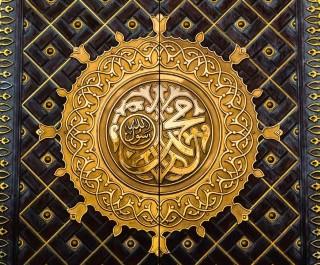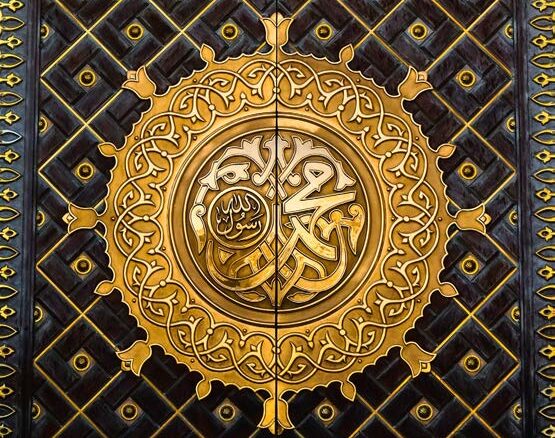


Instant gratification. From blazing fast internet speeds, to waiting a mere few seconds in the drive-thru for our meals, to instantly receiving a wide array of information regarding friends and relatives on WhatsApp, we have become accustomed to incredible comfort and convenience in ways unfathomable in times of the past. Undoubtedly, this has caused a rise of impatience and a lack of resilience in people today, not just in their material lives, but in a spiritual and moral sense as well. Often, individuals compromise or even succumb their faith due to a major ordeal, such as the loss of a child. The Holy Qur'an guides us “Surely, Allah is with the steadfast” (1) and to “Not be hasty” (2). But what does this truly mean? What kind of “patience” can we learn from the life of the Holy Prophet (sa)?
Once the Holy Prophet (sa) was asked, upon whom comes the most tribulations? He responded: Prophets. Then those who are near them, and then those who are near them.(3) One understands the essence of this statement by studying the life of the Holy Prophet (sa).
A glance at the life of the Holy Prophet (sa) suggests he had every right to question his faith: from the moment he was born, through the triumphs of Prophethood, to the latter part of his life, the life of our beloved master is an embodiment of resilience and perseverance. Firstly, he did not have the opportunity to see his father. A child at six has developed a meaningful and lasting relationship with his mother. Yet, this was the very age of our beloved master when his mother succumbed this corporeal life. Moved into the tender care of a loving grandfather, that child may finally have found a lifeline. That lifeline, however, existed a mere two years. A childhood rampant with tragedies!
The perseverance of the Holy Prophet (sa) can only be imagined by deeply pondering and reflecting over his life. His childhood briefly elaborated above, his adult life was no walk in the park. As avid Muslims know, the persecution and suffering of Muhammad (sa)
became an everyday occurrence when he claimed to be a messenger of God. He once told his wife, Hazrat Aisha (ra):
“I used to live between two awful neighbours: Abu Lahab and Uqbah bin Abi Mu’eet. Both of them would bring garbage from their houses, to the point of feces, and leave it at the front of my door.” The Holy Prophetsa would exit his house and merely say: “O Abde- Manaf! Is this is a way to treat your neighbours?” Then he would remove this filth from the path himself.”(4)
The Meccan leaders would regularly hinder the Prophet (sa) from prayer and professing his faith. From torturing his companions to leaving the entrails of animals atop the Prophet (sa) while he was in prostration, their cruelty knew no bounds. It was to the point that the Holy Prophet (sa) and his companions (ra) were boycotted to a secluded valley, known as Sh’ib Abi Talib, for a period of 3 years. Yet what was the response of the Holy Prophetsa in all these circumstances? Did his faith every waver? Did he ever question all the suffering and calamities befalling not only his personal life, but his dear companions as well? After all, the Holy Prophet (sa) once stated:
اَنَا سَیِّدُ وُلْدِ آدَم وَلاَ فَخْر
“I am the master of mankind, yet I have no pride.”5
Further, Allah Informed the Holy Prophetsa in a Hadith-e-Qudsi:
لَوْ لاَکَ لَمَا خَلَقْتُ الاَْفْلاَک
“If not for thee, I would not have Created the universe.”
Did the Prophet (sa) ever think of these realities and question the way he was treated? On the contrary, when we observe the life of the Holy Prophet (sa), he became evermore inclined towards the worship of Allah, in spite of the adversities regularly befalling him.
At the occasion of the Battle of Badr, the Holy Prophet (sa) prayed so fervently to his Lord, at times in prostration and at times standing, to the point that:
“Ḥaḍrat Abu Bakr (ra) was greatly disturbed by this state of the Holy Prophet (sa), and at times would spontaneously say, “O Messenger of Allah! May my mother and father be an offering. Do not worry, Allah shall definitely fulfill His promises.” However, the Holy
Prophet (sa) remained constantly engaged in his supplications, weeping and wailing.”6
This was the humble attitude of the greatest Prophet (sa) who was certain of the victories Promised by Allah. The same Prophet (sa) who gave glad tidings of the keys of the Roman and Persian empires to his companions while they were in the most difficult of states, hungry and cold, during the Battle of the Ditch.7
In fact, this is one of the many reasons for the great status of the Holy Prophet (sa). Other prophets of Allah simply did not face those circumstances which the Holy Prophet (sa) had to undergo. Some prophets had to deal with the loss of children, others the persecution of their followers. Some faced migration from their homeland, while others had to act in a military capacity Yet the numerous roles thrust upon the Holy Prophet (sa) were second to no man or woman in history. As a matter of fact, in his book The Perfect Man, Hazrat Mir Muhammad Ishaqra has enlisted over 20 roles exemplified by the Holy Prophet (sa), and how he perfectly executed each of those roles.8
At the battle of the Ditch, the companions and the Holy Prophet (sa) faced extremely difficult circumstances. They had to overcome the difficult task of digging a lengthy ditch, over a mile long, in bitter cold weather. Further, the lack of food was to the extent
that the companions observed the Holy Prophet (sa) had tied a stone over his stomach to suppress the pangs of hunger.9 Can you imagine the patience of our master? Put yourselves in the shoes of the Holy Prophet (sa) for one moment, how would you feel if you knew the reality of your existence and had a stone tied to your stomach? An individual today questions his faith over the most minor of issues. Yet, not only did the Holy Prophet (sa) endure these sufferings, he reacted to them in a polar opposite manner. Many parents today desire to have children of both genders. In seventh century Arabia, a son was critical for the genealogical continuity of a man. Our beloved master experienced the loss of three boys from his first wife, Hazrat Khadija (ra), yet his will remained firm. This outstanding resilience and steadfastness of the Holy Prophet (sa) is one of the implications in the verse:
اِنَّا عَرَضْنَا الاَْمٰنَتَ عَلَی الَّسَمٰوٰتِ وَالاَْرْضِ فَاَبَیْنَ اَنْ یَّحْمِلْنَھَا وَ اَشْفَقْنَ مِنْھَا وَ حَمَلَھَا الاِْنْسَان۔اِنَّہ‘ کَانَ ظَلُوْماً جَھُوْلاً۔
“Verily, We offered the Trust to the heavens and the earth and the mountains, but they
refused to bear it, and were afraid of it. But man bore it. Indeed, he is capable of being
unjust to, and neglectful of, himself.”10
The Holy Prophet (sa) not only bore incomprehensible pains, he actually grew in his appreciation of the bounties of Allah upon him. Rather than questioning, why did I lose my mother at 6, or why did I lose so many children, the Holy Prophet (sa) simply increased
his adoration for his Creator, to the point that Hazrat Aisha (ra) says he would pray for so long at night that his feet would swell up. When questioned, he would say: “Should I not be a thankful slave?”11 This is the example we are instructed to follow. This is the perfect model we must replicate in some small form or manner.
When his beloved son, Ibraham, passed away, it is narrated:
“We went in with God’s messenger to visit Abu Saif the smith who was fosterfather
of Ibrahim (The Prophet’s son who died in infancy), and God’s messenger
took Ibrahim, kissed him and smelt him. We went in to visit him later when
Ibrahim was giving up his soul, and tears began to fall from God’s messenger's
eyes, whereupon ‘Abd ar-Rahman b. ‘Auf said to him, “You too, messenger of
God?” He replied, “Ibn ‘Auf, it is compassion,” then shed more tears and said,
“The eye weeps and the heart grieves, but we say only what our Lord is pleased
with, and we are grieved over being separated from you, Ibrahim.”12
There is a famous couplet of the Urdu poet Mirza Ghalib:
جان دی دی ہوئی اسی کی تھی
حق تہ یوں ہے کہ حق ادا نہ ہوا
Though I gave my life for him, it was His in any case,
In reality, I cannot repay Him for His Favours
Perhaps no person in history has truly acted upon the theme of this couplet. No person besides the Holy Prophet (sa). This was our beloved master, the seal of the Prophets, who endured mountains of sufferings, yet only had one thing to say:
Praise be to Allah!
Endnotes
- The Holy Qur’an, 2: 154
- The Holy Qur’an, 17: 38
- Uswa’h Insan-e-Kamil, p. 502
- Sirat al-Halbiya
- Sunan Ibn Majah: vol. V, Book 37, Hadith 4308
- The Life & Character of the Seal of Prophets, vol. II, p. 151
- The History of Prophets & Kings, Tarikh al-Tabari, vol. II, p.92
- The Perfect Man, Insan-e-Kamil, Hazrat Mir Muhammad Ishaqra
- Gardens of the Righteous, Riyad as-Salihin, Book of Miscellany
- The Holy Qur’an, 33: 73
- Sahih al-Bukhari, Chapter Prayer at Night
- Sahih al-Bukhari, Chapter Weeping for the Dead.
